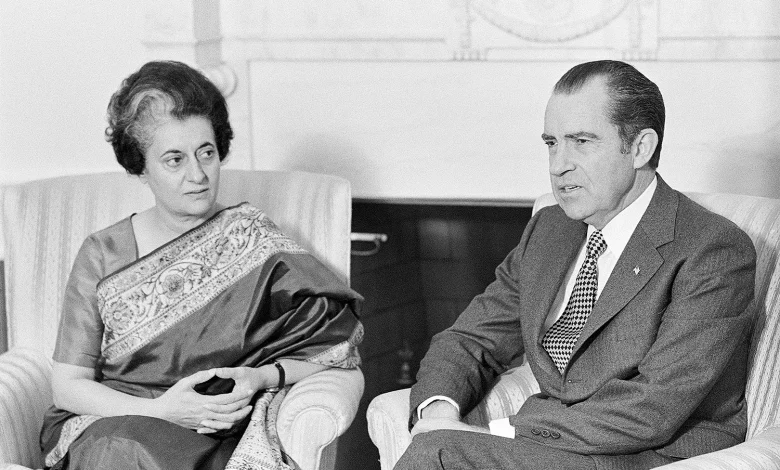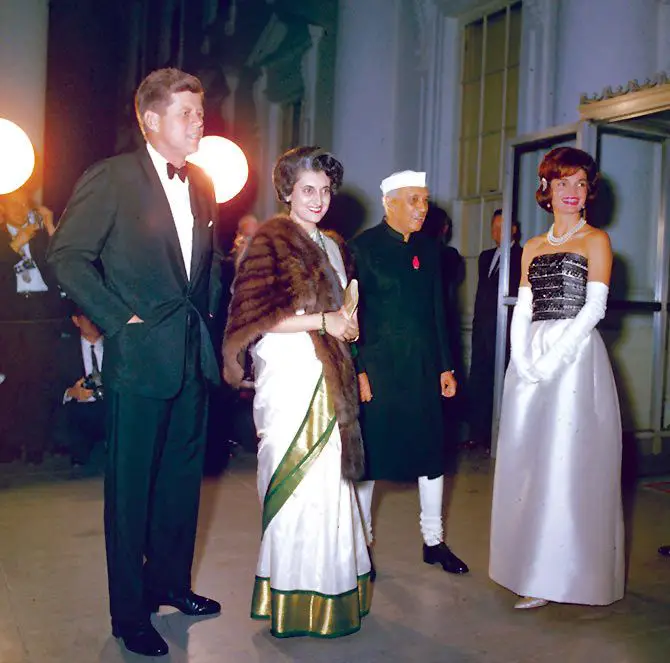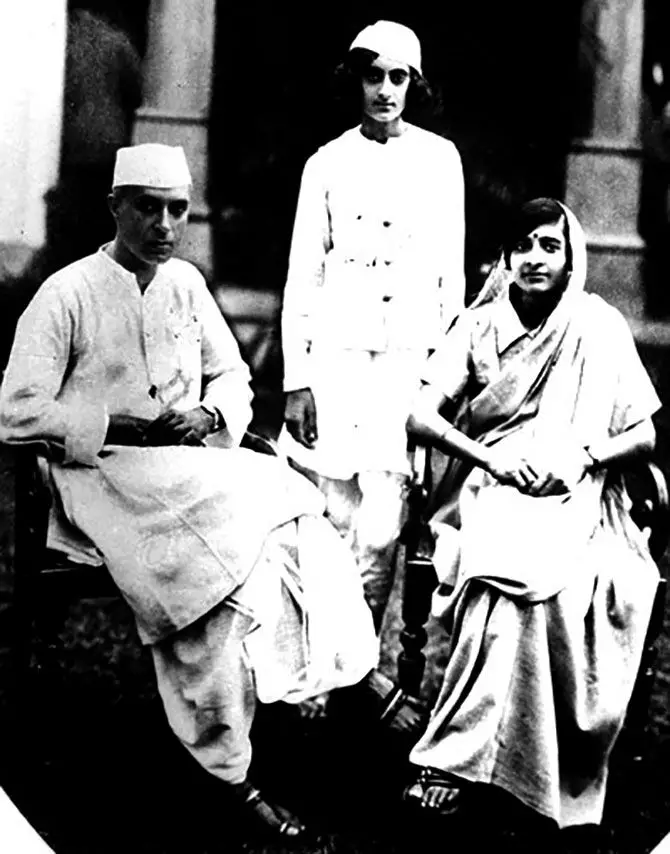Indira Gandhi: The James Bond of Power Politics

Indira Gandhi, the iconic former Prime Minister of India, left an indelible mark on the country’s political landscape. Known for her astute understanding of power politics and her unwavering determination, Gandhi’s leadership continues to resonate with the Indian populace. From her decisive military victory in the 1971 war to her populist appeal and centralization of authority, she remains a towering figure in Indian politics. In this article, we delve into the life and legacy of Indira Gandhi, exploring her political strategies, accomplishments, and the enduring impact she has had on Indian politics.
Key Takeaways
- Indira Gandhi was a dynamic and influential political leader who won a decisive military victory and pursued populist policies during her tenure as India’s Prime Minister.
- Her centralized leadership style and personalized approach to politics set her apart, and her ability to mobilize the masses through direct engagement with voters was unparalleled.
- Gandhi’s economic policies, such as bank nationalization and agrarian reforms, aimed to reduce poverty and promote self-reliance in India.
- Her legacy extends beyond her time in office, with her political strategies, leadership style, and feminist ideals continuing to influence subsequent leaders and shape Indian politics.
Dominance in Politics
Indira Gandhi’s political dominance was unparalleled. She was the original High Command leader in Indian politics and the first to embody the “supremo” cult. Her absolute control over her party and government allowed her to bypass constitutional norms and govern with a personalized and highly centralized approach. Moreover, she reached out directly to the masses, establishing herself as India’s first true populist leader. Many politicians today, who seek supremacy through populism and authoritarian control, draw inspiration from the Indira Gandhi playbook.

Military Victories and Political Acumen
Indira Gandhi’s tenure as Prime Minister saw her achieve a decisive military victory, earning her widespread acclaim. Unlike politicians who engage in symbolic acts or televised displays, she engaged in real warfare and emerged victorious. Her strategic prowess and understanding of power politics enabled her to secure significant mandates and exercise power ruthlessly. Indira Gandhi’s unique ability to convert adversity into advantage showcased her political acumen and further solidified her position as a dominant force in Indian politics.
Indira Gandhi’s Heir: Narendra Modi?
Comparisons have been drawn between Indira Gandhi and the current Indian Prime Minister, Narendra Modi. While it may be premature to assess Modi’s true worth as a leader, some similarities between the two are apparent. Like Indira Gandhi, Modi demonstrates authoritarian tendencies, centralizing power within his leadership. However, Indira Gandhi would likely have disapproved of Modi’s Hindu nationalist politics. Despite shared traits, their ideological differences highlight the complexity of political legacies and the multifaceted nature of leadership.

The Indira Gandhi Playbook
Indira Gandhi’s influence extends beyond her time in office. Contemporary politicians, such as Amit Shah, draw inspiration from her political playbook. Indira’s legacy as a strong and decisive leader resonates with the Sangh Parivar, the ideological parent of the Bharatiya Janata Party (BJP). While the BJP and Sangh Parivar vehemently criticize other members of the Nehru-Gandhi family, they tend to be relatively muted in their criticism of Indira Gandhi. Her political stature and the power she wielded make her an enduring symbol of strong and decisive leadership in Indian politics.
Unveiling the Personal Side
While much is known about Indira Gandhi’s political life, her personal relationships and private struggles have received less attention. In her biography, Sagarika Ghose sheds light on the complexities of Indira Gandhi’s life. The book explores her relationships, feminism, East-West identity, and even her aesthetics. By weaving together the personal and political aspects of her life, Ghose provides a comprehensive portrait of a leader whose personal foibles and paranoias were inseparable from her political actions.
The Father-Daughter Dynamic
Indira Gandhi’s relationship with her father, Jawaharlal Nehru, was complex. While there was fondness, their connection lacked warmth and excessive affection. Indira resented Nehru for what she perceived as his neglectful treatment of her mother during her illness. Nehru, in turn, had high expectations for Indira and often judged her intellectual abilities and political commitment. The freedom fighters of that era often held their children to exceptionally high standards, pushing them to make sacrifices and excel in their own right.

A Missed Opportunity: China and the 1962 War
Indira Gandhi’s role in influencing her father’s policies, particularly on China and the 1962 war, was limited. Nehru often ignored her advice and objections on political matters, leaving her resentful. The blame for the disastrous war with China lies primarily with Nehru and his defense minister, Krishna Menon, who failed to recognize the impending threat and focused on Pakistan instead. Indira Gandhi’s proximity to her father during his foreign endeavors did not translate into significant influence over his decisions.
FAQ
Question 1: What were some of the key accomplishments of Indira Gandhi during her time as Prime Minister?
Indira Gandhi’s tenure as Prime Minister was marked by several notable accomplishments. One of her most significant achievements was leading India to a decisive military victory in the 1971 war against Pakistan, which resulted in the creation of Bangladesh. This victory not only strengthened India’s position in the region but also showcased Gandhi’s strategic prowess and leadership.
Furthermore, she implemented various social and economic policies aimed at reducing poverty and promoting self-reliance. Her government introduced the nationalization of banks, which aimed to bring financial services to the masses and support economic development. Additionally, she focused on agrarian reforms, aiming to uplift the rural poor through land redistribution programs.
Gandhi’s political acumen was also evident in her ability to navigate international relations. She skillfully balanced relationships with both Western and Eastern bloc countries, playing a significant role in the Non-Aligned Movement. Her leadership during the 1974 Pokhran nuclear test demonstrated India’s scientific capabilities and its stance on nuclear disarmament.
Question 2: How did Indira Gandhi’s leadership style differ from her successors?
Indira Gandhi’s leadership style was distinct from her successors in several ways. One key aspect was her ability to consolidate power within her party and government. She established herself as a dominant leader who exerted considerable control over decision-making processes. This centralized and personalized approach allowed her to pursue her political agenda with relative autonomy.
Additionally, Gandhi possessed a unique charisma and connection with the masses. She was adept at mobilizing public support and engaging directly with voters. Her populist approach to politics set her apart from subsequent leaders who often relied on party structures and formal mechanisms.
Moreover, Gandhi’s political career was marked by a willingness to take bold and decisive actions. She did not shy away from making controversial decisions, such as the declaration of a state of emergency in 1975. This demonstrated her resolve to maintain authority, even if it meant curbing civil liberties temporarily.
Question 3: How did Indira Gandhi’s relationship with her father, Jawaharlal Nehru, influence her political career?
Indira Gandhi’s relationship with her father, Jawaharlal Nehru, had a significant impact on her political career. While there was affection between them, their bond was not overly warm or openly affectionate. Nehru, being a towering figure in Indian politics, had high expectations for Indira. She felt a constant pressure to prove herself and gain his approval.
Despite seeking her father’s validation, Gandhi also rebelled against his judgments and opinions. She resented his perceived neglect of her mother during her illness and disagreed with him on various political matters. This rebellion fueled her determination to carve her own path in politics and establish her individual identity.
Nehru’s legacy and his influence on Indian politics were instrumental in shaping Gandhi’s political outlook. She inherited his socialist ideologies and commitment to secularism, but also sought to distinguish herself from his leadership style. The complexities of their relationship and her desire to prove herself as a capable leader further motivated her actions throughout her career.
Question 4: Did Indira Gandhi’s political strategies have any lasting impact on Indian politics?
Indira Gandhi’s political strategies undoubtedly left a lasting impact on Indian politics. She pioneered the concept of the “supremo” cult, which revolves around a dominant leader who exercises absolute control over the party. This model continues to influence Indian politics today, with several leaders attempting to emulate her style of personalized and centralized leadership.
Moreover, Gandhi’s ability to connect directly with voters and mobilize the masses through populist appeals set a precedent for future politicians. Her emphasis on addressing the concerns of the common people and awakening their political consciousness shaped subsequent electoral campaigns and political discourse in India.
Furthermore, her focus on economic policies, such as bank nationalization and agrarian reforms, set the stage for debates on economic development and social welfare. The nationalization of banks, in particular, played a crucial role in expanding access to financial services and promoting inclusive growth.
Question 5: How did Indira Gandhi handle international relations during her tenure as Prime Minister?
Indira Gandhi’s approach to international relations was characterized by a delicate balance between various global powers and regional interests. She skillfully maneuvered India’s position within the Cold War dynamics, ensuring that India maintained its non-aligned status while engaging with both the Western and Eastern blocs.
Gandhi prioritized strengthening ties with neighboring countries in South Asia. She sought to establish India as a regional power by actively engaging in regional forums and addressing regional conflicts. Her role in mediating the Bangladesh Liberation War and facilitating the birth of Bangladesh was a testament to her diplomatic acumen.
Furthermore, Gandhi advocated for the principles of non-alignment and disarmament on the global stage. She played an active role in the Non-Aligned Movement, working towards promoting cooperation among developing nations and advocating for peace and disarmament. This commitment to non-alignment and diplomacy solidified India’s position as a key player in international affairs.
However, it is worth noting that her foreign policy decisions were not without controversy. Gandhi’s handling of the India-Pakistan relationship, particularly during the 1971 war, had long-term ramifications and contributed to strained relations between the two countries.
Question 6: How did Indira Gandhi’s policies impact the economic landscape of India?
Indira Gandhi’s policies had a significant impact on the economic landscape of India. Her government introduced several measures aimed at reducing poverty, promoting economic self-reliance, and addressing social inequalities.
One of her notable initiatives was the nationalization of banks. By bringing major banks under government control, her government aimed to expand access to financial services, especially for rural and marginalized communities. This step played a crucial role in channeling credit to sectors that had previously been neglected, fostering economic growth and promoting financial inclusion.
Gandhi’s emphasis on agrarian reforms also had a far-reaching impact. Land redistribution programs aimed to address land ownership disparities and empower marginalized farmers. These initiatives sought to alleviate rural poverty and enhance agricultural productivity, ultimately contributing to the transformation of the agricultural sector.
Additionally, her government implemented policies to promote self-sufficiency and reduce dependence on imports. The Green Revolution, for instance, focused on agricultural modernization and the adoption of high-yielding crop varieties, leading to increased food production and improved food security.
While the long-term impact of these policies remains a subject of debate, there is no denying that Indira Gandhi’s economic measures aimed to address social inequalities and promote self-reliance in India.
Question 7: How did Indira Gandhi’s handling of the state of emergency shape her political legacy?
Indira Gandhi’s declaration of a state of emergency in 1975 had a profound impact on her political legacy. The emergency period, which lasted for 21 months, witnessed a suspension of civil liberties, censorship of the press, and the arrest of political opponents.
While Gandhi justified the emergency as a necessary measure to restore law and order and implement reforms, it was widely criticized as an abuse of power and a suppression of democratic values. The emergency period saw a centralization of authority, with Gandhi’s government curbing dissent and opposition.
However, the emergency also served as a turning point in Indian politics. It fueled a sense of resistance and led to a significant backlash against Gandhi’s leadership. The subsequent electoral defeat of her party in 1977 demonstrated the power of democratic forces and the resilience of Indian democracy.
The state of emergency, although controversial, remains an integral part of Indira Gandhi’s political legacy. It serves as a reminder of the importance of upholding democratic values, the need for checks and balances, and the potential consequences of centralized power.
Question 8: How did Indira Gandhi’s feminist ideals shape her political agenda?
Indira Gandhi’s feminist ideals played a significant role in shaping her political agenda. She was a trailblazer in a male-dominated political landscape, and her leadership served as an inspiration for women across India.
Gandhi championed the cause of women’s empowerment and worked towards gender equality. During her tenure as Prime Minister, she sought to address women’s issues through policy initiatives and legislation. The introduction of laws to protect women from dowry harassment and domestic violence reflected her commitment to improving the status and rights of women.
Moreover, Gandhi’s rise to power challenged traditional gender roles and norms. By occupying the highest political office in India, she shattered glass ceilings and paved the way for future generations of women leaders.
However, it is essential to recognize that Gandhi’s feminist ideals were not without criticism. Some argued that her policies and actions did not go far enough in addressing the deep-rooted gender inequalities prevalent in Indian society. Nevertheless, her contribution to the feminist movement in India remains significant and continues to inspire women in their pursuit of equal rights and opportunities.
Question 9: How did Indira Gandhi’s leadership influence the Indian National Congress party?
Indira Gandhi’s leadership had a profound impact on the Indian National Congress party, which she led for a significant portion of her political career. Under her stewardship, the party transformed into a vehicle of personal authority and centralized control.
Gandhi’s dominance within the party was unparalleled. She established herself as the undisputed boss, and her authority superseded that of other party leaders. This centralization of power allowed her to pursue her political agenda without significant internal opposition.
Furthermore, her ability to connect directly with the masses and mobilize popular support reshaped the Congress party’s electoral strategies. Gandhi’s populist approach and emphasis on addressing the concerns of the common people set a precedent for future party campaigns.
However, her leadership style also led to a fragmentation within the Congress party. Dissent within the party grew, leading to internal factions and eventual splits. The most notable split occurred in 1969 when Gandhi’s decision to expel senior Congress leaders resulted in the formation of a rival faction, Congress (O).
In summary, Indira Gandhi’s leadership left a lasting impact on the Indian National Congress party. While her dominance and populist approach shaped the party’s political strategies, her leadership also contributed to internal divisions and reshaped the party’s dynamics.
Question 10: How did Indira Gandhi’s political legacy influence subsequent female political leaders in India?
Indira Gandhi’s political legacy had a profound influence on subsequent female political leaders in India. Her rise to power and tenure as Prime Minister inspired generations of women to enter politics and challenge gender barriers.
Gandhi’s ability to navigate the complexities of Indian politics and establish herself as a dominant leader set a precedent for other women leaders. Her determination and resilience in the face of opposition served as an inspiration for women across the country.
Furthermore, Gandhi’s emphasis on women’s empowerment and gender equality resonated with subsequent female political leaders. They sought to build upon her legacy by advocating for policies and legislation that addressed women’s issues, promoted gender equality, and increased women’s representation in political institutions.
However, it is important to note that Gandhi’s leadership style and policies were not without criticism. Some argued that she did not do enough to address deep-rooted gender inequalities and that her rise to power was aided by her family name rather than purely meritocratic factors.
Nonetheless, Indira Gandhi’s political legacy continues to shape the aspirations and political journeys of female leaders in India. Her accomplishments and struggles serve as a constant reminder of the challenges faced by women in politics and the importance of breaking barriers for future generations.
Conclusion
Indira Gandhi’s legacy as the “James Bond of power politics” endures in the annals of Indian history. Her leadership, marked by a blend of charisma, determination, and strategic acumen, propelled her to the forefront of Indian politics. From her military victory in the 1971 war to her emphasis on social and economic reforms, Gandhi’s impact on India was profound.
While her leadership style and policies faced criticism, particularly during the state of emergency, there is no denying her lasting influence. Indira Gandhi’s ability to connect with the masses, her commitment to women’s empowerment, and her unyielding pursuit of political dominance have left an indelible imprint on Indian politics.
As India commemorates the centenary of her birth, it is crucial to reflect on the complexities and nuances of Indira Gandhi’s legacy. Her contributions, accomplishments, and the challenges she faced serve as a constant reminder of the evolving nature of leadership and the enduring impact of individuals on the political landscape.








